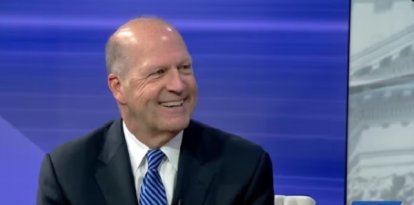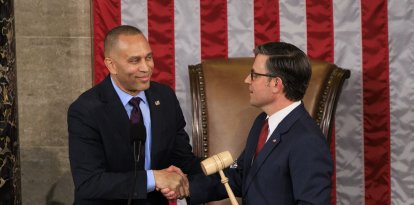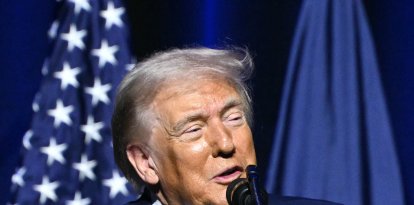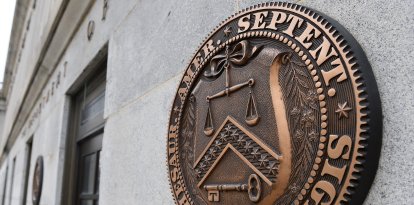Between moderates and fiscal hawks: These are the key votes for Trump's big law in the House
With a self-imposed July 4 deadline to pass the "One Big, Beautiful Bill," House Republicans have little time to set aside their differences and pass the Senate version.
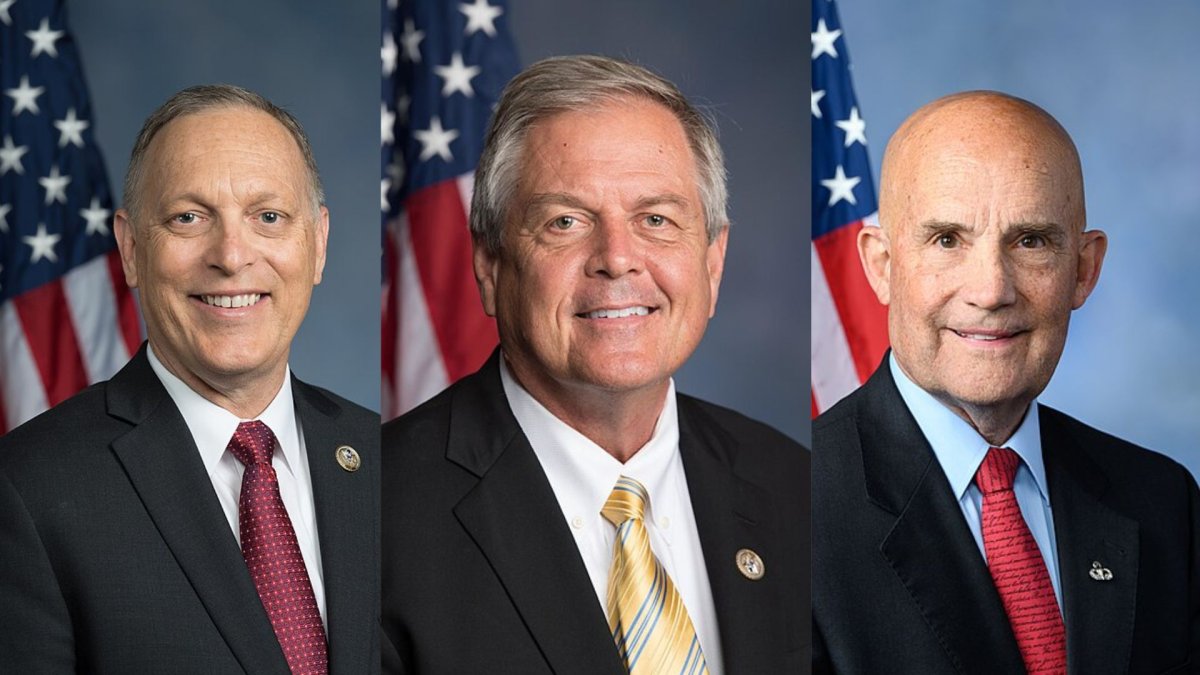
Biggs, Norman and Self/ US House Office of Photography.
With the self-imposed July 4 deadline to pass the "One Big, Beautiful Bill," Republicans in the House have little time to set aside their differences and pass the Senate version. However, there are some congressmen who have already expressed their doubts and complaints about the changes made by the Upper House.
Last May 22, the House of Representatives approved the big law by just one vote. The 215 votes in favor were the product of months of negotiations among Republicans so that the text would have the approval of both fiscal hawks and Republicans representing moderate districts in blue states. That delicate balance of provisions was changed by the Senate and now there are just days to rebuild that fragile Republican majority.

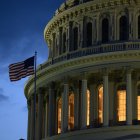
Politics
El BBB salva el primer obstáculo en la Cámara con la oposición del ala dura del GOP
Williams Perdomo
"We knew the Senate would amend the House product. I encouraged them to amend it as little as possible. They went a little further than many of us would have preferred," House Speaker Mike Johnson said Tuesday afternoon.
With Johnson only able to face three Republican casualties (assuming all Democrats vote no), only a handful of no votes would be enough to stop the president's legislation.
Congressional Republicans to watch for the final vote
- Ralph Norman (R-SC). The South Carolina Republican was among the first to sharply criticize the Senate changes: "Our bill has been completely changed. It has no future."
- Andy Biggs (R-AZ). The former Freedom Caucus chairman was also highly critical of the final version of the legislation. "There’s some amazingly bad stuff in here, like, I mean, let’s just face it, Elon Musk is right, it’s bad, but President Trump is right, it’s good. I mean, there’s some really, really good stuff, and there’s not so good stuff," he said in a radio interview.
- Scott Perry (R-PA). The Freedom Caucus chairman voted "present" on the May ballot, so presumably he will do the same in this runoff.
- Andy Oagles (R-TN). Also a member of the Freedom Caucus, he took issue with the upper chamber's amendments, particularly on energy issues. "The Green New Deal needs to die. The House passed OBBB brings the critical wins, the Senate’s falls short," he noted in X.
- Lloyd Smucker (R-PA). Another Pennsylvania Republican, he was one of the chief budget architects of the House-passed version.
- Keith Self (R-TX):The veteran Texas congressman directly proposed going back to the version he and his colleagues passed in May.
- Jeff Van Drew (R-NJ). The former Democrat who switched to the GOP in 2020 advanced to The Hill that he is not at all happy with the Senate changes, particularly those related to changes to Medicaid provider taxes.
- David Valadao (R-CA). Citing the same reasons as Van Drew, the California Republican said he would not support "a final bill that eliminates vital funding streams our hospitals rely on, including provider taxes and state directed payments, or any provisions that punish expansion states."
- Don Bacon (R-NE). The Nebraska centrist has already announced he won't seek re-election, so he left the pressure of ballot-box survival behind. "Instead of improving the Medicaid and energy portions of [the] House bill, it appears the Senate went backwards," he told The Hillover the past weekend.
- Nick LaLota (R-NY). The New York Republican is a member of the group of moderate blue-state Republicans. In fact, he was part of the negotiations for the state and local tax (SALT) deduction cap.













